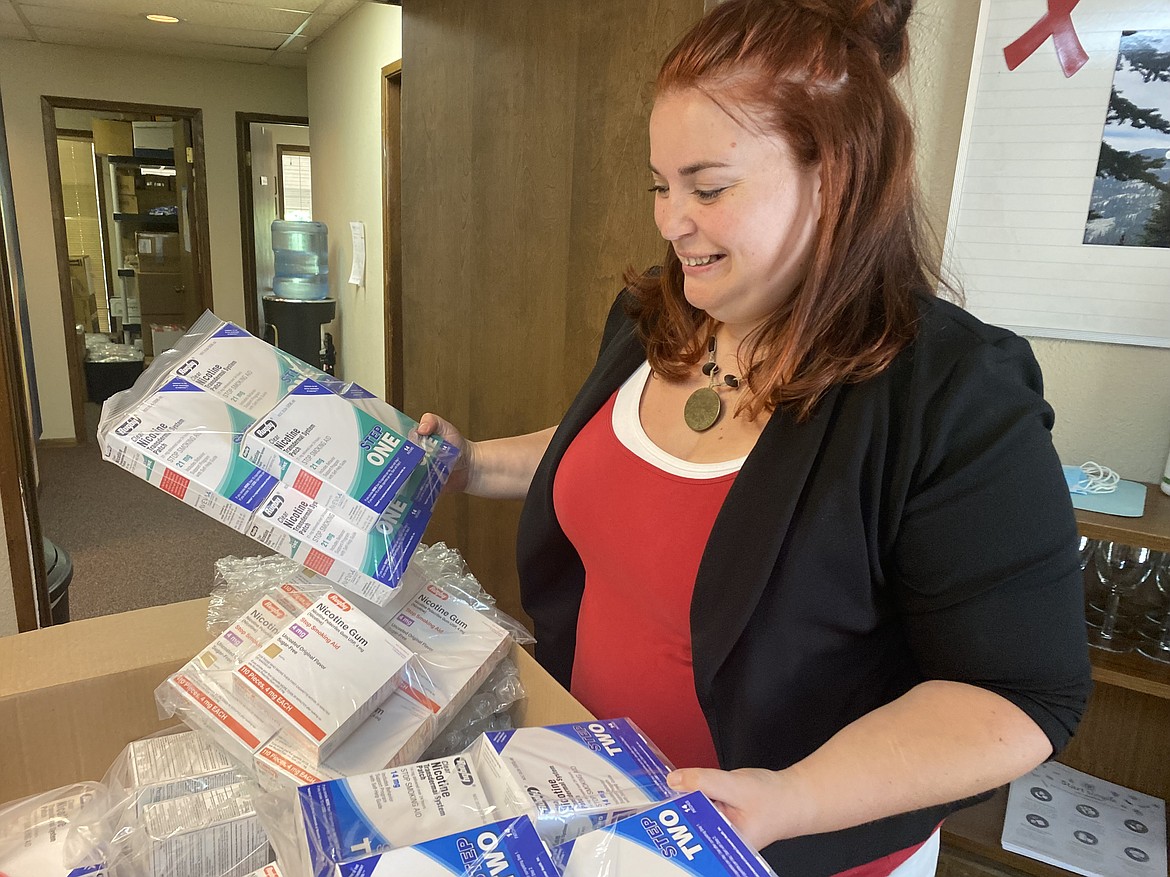Addicted to cigs? Free help is here
COEUR d'ALENE — After decades of targeting by Big Tobacco companies, the North Idaho AIDS Coalition is teaming up with Project Filter to help vulnerable populations snuff the cigs — for free.
NIAC, a nonprofit organization, advocates for and raises awareness of HIV education, transmission, prevention, and free public health services for at-risk individuals in the 10 northernmost Idaho counties.
Now the group is fighting against nicotine addiction.
"All it takes is coming in and being willing to quit," NIAC administrative assistant Charlie Congdon said.
Through Nicotine Replacement Therapy, products that relieve nicotine cravings while trying to quit smoking, NIAC hopes first to help minority groups who they say have been targeted by Big Tobacco. Specifically, NIAC executive director Theresa Davis said homeless, LGBTQ+, people who live with HIV/AIDS, and those who live below the poverty line have been disproportionally affected.
"It can be very expensive trying to quit," Davis said. "That's why we're here trying to offer services for free to reduce out-of-pocket costs to people underrepresented in our community."
In 1998, 52 state and territory attorneys general signed the Master Settlement Agreement with the four largest U.S. tobacco companies on multiple state lawsuits over the advertising and promotion of cigarettes. Davis said the settlement forced companies to provide billions of dollars to fund state smoking prevention programs, like Project Filter.
"Idaho received the money from those lawsuits and created this program through the Department of Health and Welfare to reach out to our community to help people stop smoking," Davis said. "NIAC is here and willing to help people who want to quit smoking get signed up."
For decades, tobacco advertisements were marketed in print, on television, and through radio. Some may remember Joe Camel, a cartoon character developed by the R.J. Reynolds Tobacco Company — seller of Camel cigarettes — which the Federal Trade Commission later charged with appealing to children under 18.
Congdon, too, battled nicotine addiction and said she has tried to quit smoking five times since turning 18. Her longest stretch was two and a half years surrounding pregnancy after Congdon's doctor warned the risk it presented to infants.
"They tried to make it look like everybody has a place as long as they have a cigarette in their hand," Congdon said of the advertisers.
In 1995, R.J. Reynolds created a new strategy called "Project Scum" (Sub-Culture Urban Marketing) "to boost cigarette sales by targeting gay men and homeless individuals with advertisements," according to the Truth Initiative (TI), a nonprofit public health organization.
Twenty years later, the TI reported that 20.5% of LGBTQ adults smoke cigarettes compared to 15.3% heterosexual adults.
"Coming out as gay is a pretty challenging thing to do," Davis explained. "Not all do, but some can have challenges in terms of emotions and trauma because of that. So they're the best ones to target.
"That's what Big Tobacco looks for, in my opinion — victims. People who go to cigarettes to ease their anxiety, nervousness and fears."
Those who sign up through NIAC can receive two weeks of NRT products, Congdon said, ranging from two to 24 milligrams of nicotine. NRT treatment is available over the counter, Davis said, but can cost $40 per box and can add up in the long term.
Davis herself quit smoking 30 years ago after watching people in her family suffer the consequences of smoking-related health disparities, including cancer, chronic obstructive pulmonary disease (COPD), high blood pressure and heart disease.
"I didn't want my family, my children, to go through that for a disease that is preventable," she said. "Now we have the resources to help people prevent that disease, and it doesn't cost them a single nickel."
Project Filter is a statewide effort available to all. Due to funding limitations, only NIAC's target demographics can receive Project Filter through their services. However, Davis hinted that "something bigger" for the partnership is coming in 2022.
Community members can learn about NIAC and Project Filter through:
• Walk-in or sign-up services at the NIAC Government Way location
• The Mobile Testing Unit at Panhandle Health District parking lots and Latah County
• Digital media sites like Facebook and Tik Tok
• North Idaho Pride Alliance events
For more information or to donate to NIAC: www.northidahoaidscoalition.org/.
Project Filter: www.livebetteridaho.org

